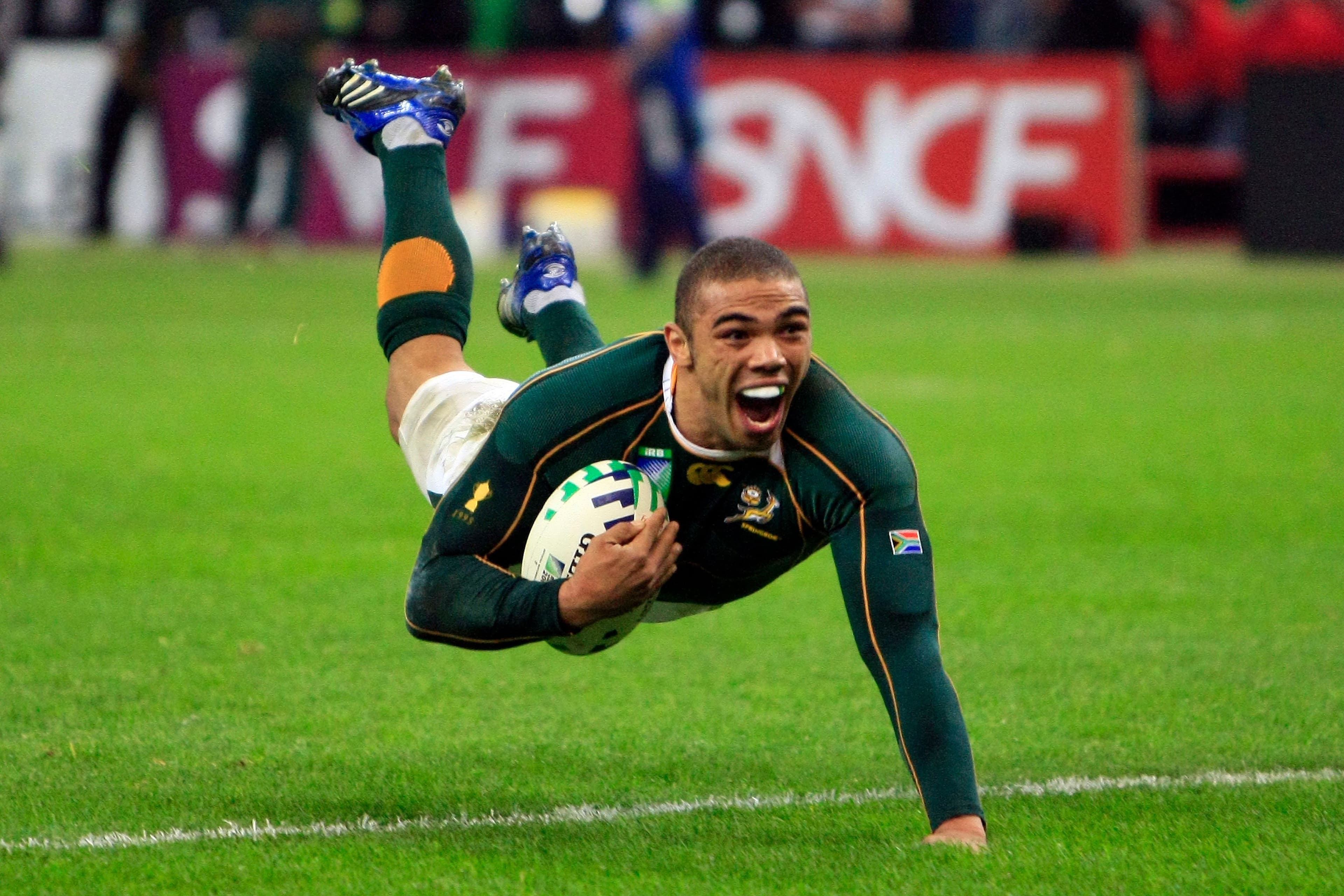Rugby
How Does Rugby Scoring Work?
Want to find out how rugby scoring works? There are so many options, and all of them worth various points. We break them all down here!

Image Credits: Eddy LEMAISTRE/Corbis via Getty Images
Rugby union is unique in that there are various ways to score points. Tries, conversions, drop goals and penalties are all worth different values, but all put points on the scoreboard for the attacking team.
Try – Primary scoring method, and worth a hefty five points
A try is the most common way to score points in a game of rugby. When a player is able to ground the ball – by applying downward pressure on it on the goal line, or inside the ‘in-goal’ area, or by touching the ball down at the base of the padded goalposts.
There are only two ways a try will be awarded; a player carries the ball into the ‘in-goal’ area and grounds it, or a ball already in the ‘in-goal’ area is grounded by an advancing attacking player. Note that World Rugby dictates that the act of ‘grounding’ the ball can only be completed by pressure from a player’s hands, arms of the front of their body from the waist to their neck.
Where the referee deems that a defending team has committed a foul, which in turn prevents the advancing team from scoring a try, a penalty try is awarded. Such tries are awarded by the official in the middle of the goal posts and does not require the attacking team to attempt a conversion.
Conversion – Effectively a free shot at goal and worth two points
After each try, the attacking team is given an opportunity to score two subsequent points by means of a conversion kick. This kick is taken at any point in the field of play – but must be in line with where the initial try was scored, and parallel to the touch line.
A successful conversion kick occurs when the ball is kicked above the crossbar and between the upright posts. This kick usually takes the form of a place kick, that is to say the ball is teed up from the ground. For the brave, however, a drop kick might also be attempted.
Did you know! Daniel Carter – often referred to as arguably the best flyhalf in rugby union history and holds the record for the greatest number of successful conversion kicks made in international rugby!
The Famous Drop Goal attempt – Worth a Tempting Three Points!
Once every so often, a team will kick a drop goal – also worth three points. During live play, an offensive player may choose to drop the ball on the ground and kick it as it hits the grass.
The defensive team may block this attempt, but if the ball goes through the posts, the offensive team is awarded three points. If they miss, and the ball is still live, either team may collect the ball and continue play.
The Penalty Kick – An opportunity to capitalise on poor behaviour
Where the defending team commits a major infringement, the referee awards the attacking side a penalty. The attacking team are then presented with many options, but one of them is the opportunity to opt for a penalty kick from the spot where the infringement occurred.
Penalty kicks, like conversions, are place kicks, and the attacking player has one minute to slot their kick through the posts and earn three points for their team. Note, where a ball falls off the tee, and time is up, the kicker may choose to quickly drop kick the ball.
So, who holds the record for the longest penalty kick then? This is often a hot topic for debate, largely because the history is so blurry. Nevertheless, World Rugby holds that Paul Thorburn cleared a mammoth 64.2-meter-long penalty for Wales in 1986!
“Woof, what a belt he has given it. That is amazing. I’ve seen all the great goalkickers in the world over the last decade but I have never seen a kick like this one. He gave it a monster smack.” – exclaimed legendary BBC commentator, Bill McLaren!
Lastly, a Bonus Point, About a Bonus Point!
Where a rugby match involves tournaments with groups and logs, teams are awarded four points for a win and two for a draw. In an effort to see more attacking rugby, a bonus point is given where teams score four or more tries in a game.
Teams may also earn a so-called ‘losing bonus point’ if they keep within seven points of their opponent. Teams can, however, only earn a maximum of five points per game.

Ryan Liberty is an experienced sports writer whose articles have featured in some of the biggest sports publications in South Africa. With a strong understanding of all major sports and an in-depth understanding of betting, Ryan consistently delivers insightful content. He's also known for his ability to break down complex topics into engaging, reader-friendly pieces.